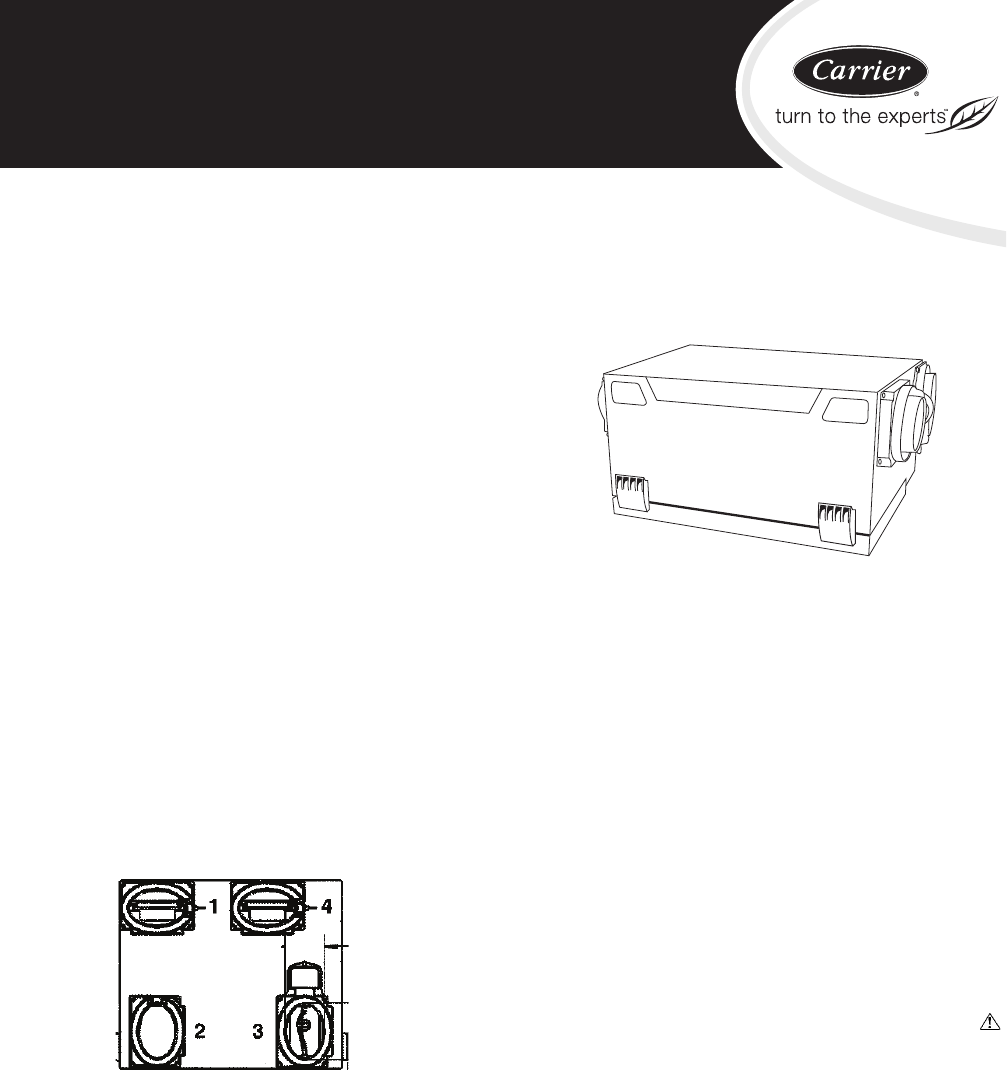
ERVC CSVB1100, ERVC CSHB1100
HRVCCSVB1100, HRV CCSHB1100
Energy / Heat Recovery Ventilator
Installation Instructions
NOTE: Read the entire instruction manual before starting the
installation.
TABLE OF CONTENTS
PAGE
SAFETY CONSIDERATIONS 1.........................
INTRODUCTION 2...................................
INSTALLATION CONSIDERATIONS 2...................
COMPONENT DESCRIPTION 2........................
UNIT INSTALLATION 3...............................
WALL CONTROL 4...................................
OPERATING THE ERV/HRV WITH
THE INFINITY CONTROL 6...........................
ELECTRICAL CONNECTIONS 6........................
ACCESSORIES 6.....................................
BALANCING ERV/HRV 7..............................
VENTILATION EVALUATION 8........................
CONTROL BOARD OPERATION 8......................
CARE AND MAINTENANCE 8.........................
TROUBLESHOOTING 9...............................
1. Fresh air to building port
2. Exhaust air from building port
3. Fresh air from outside port
4. Exhaust air to outside port
A08103
Fig. 1 -- ERV/HRV Unit (Top Port)
A05330
Fig. 2 -- ERV/HRV Unit (Side Port)
SAFETY CONSIDERATIONS
Improper installation, adjustment, alteration, service, maintenance,
or use can cause explosion, fire, electrical shock, or other
conditions which may cause death, personal injury or property
damage. Consult a qualified installer, service agency, or your
distributor or branch for information or assistance. The qualified
installer or agency must use factory--authorized kits or accessories
when modifying this product. Refer to the individual instructions
packaged with kits or accessories when installing.
Follow all safety codes. Wear safety glasses, protective clothing
and work gloves. Have a fire extinguisher available. Read these
instructions thoroughly and follow all warnings or cautions
included in literature and attached to the unit. Consult local
building codes and the current editions of the National Electrical
Code (NEC) NFPA 70.
In Canada, refer to the current editions of the Canadian Electrical
Code CSA C22.1.
Recognize safety information. This is the safety--alert symbol
.
When you see this symbol on the unit and in instruction manuals,
be alert to the potential for personal injury.
Understand the signal words DANGER, WARNING,and
CAUTION. These words are used with the safety--alert symbol.
DANGER identifies the most serious hazards which will result in
severe personal injury or death. WARNING signifies hazards
which could result in personal injury or death. CAUTION is used
to identify unsafe practices which may result in minor personal
injury or product and property damage. NOTE is used to highlight
suggestions which will result in enhanced installation, reliability, or
operation.
